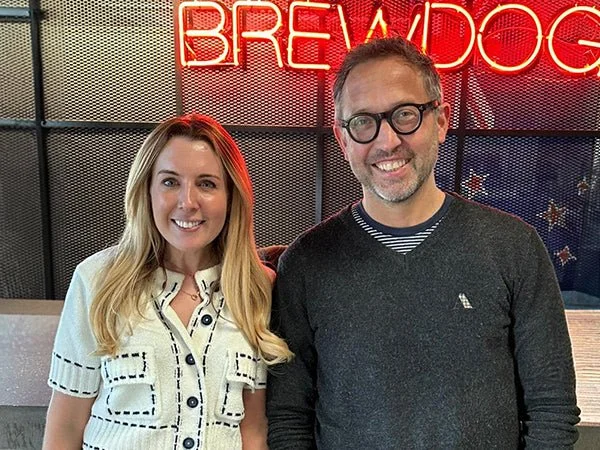There is a familiar grind to building a brand. You spend years navigating ever-changing algorithms, emailing 100 journalists at a time, tweaking subject lines to land in the right inbox and just hustling, day after day, to get your brand seen.
And eventually, if you do it right, the recognition comes. Notoriety. A following. Press mentions. Brand awareness. But what also happens, often unintentionally, is that your personal brand rises right alongside it.
Suddenly, you are the story.
Not your product. Not your mission. Not the data you obsessed over for weeks. You.
The press wants to know what car you drive. What wine you drink. Who you are dating. The audience is watching to see if your posts are going to be authentic or performative. You are no longer just the founder. You are an internet personality, like it or not.
When Visibility Becomes Vulnerability
Enter BrewDog.
Once a beloved challenger brand in the craft beer world, BrewDog rose to fame with bold marketing and unapologetic founders who embodied the brand’s rebellious edge. But somewhere along the way, the spotlight started to shift. No longer was the conversation focused on beer quality or product innovation. Instead, it was on James Watt’s personal life, the controversies, the criticism, the rebrand, the partners, the parties.
Where personal branding once helped to humanise the business and build community, it is now being scrutinised and, in some cases, turned into a liability. And the big question appears:
Is the brand suffering because people simply do not like the founder anymore?
Not Every Personal Brand Converts
We all know the success stories. Founders who build massive loyalty and drive conversion just by showing up online. When it works, personal branding can create real connection, build trust and increase revenue. Think Ben Francis at Gymshark or Whitney Wolfe Herd at Bumble. But it does not work for everyone.
With every follower comes a critic. And when your audience turns into an echo chamber of backlash, your brand starts to absorb the blow.
In BrewDog’s case, the rebrand received a wave of negativity. Some of it may have been justified, some of it performative. Was the branding really that far off? Was it truly inauthentic? Or has it just become trendy to dislike the brand because the founders are visible and easy to comment on?
Has BrewDog become the low-hanging fruit for marketing Slack channels and LinkedIn opinions?
The Inevitable Disconnect
Here is the issue. Founders are being asked to show up more than ever. To have opinions. To be visible. To be transparent. But that visibility brings risk. When the line between you and the business becomes blurred, any personal misstep becomes a business problem.
If the founder is the brand, what happens when the audience stops buying into the founder?
That is where many brands now find themselves, especially those built in the social media age. What started as honest, relatable storytelling can quickly become overexposure. One post too many. One carefully curated shoot that feels a bit off. One quote in an interview that does not land. And just like that, trust starts to fade.
Does Controversy Still Convert?
So has the noise around BrewDog actually hurt sales? Maybe. Maybe not. It is entirely possible that the buzz, whether good or bad, is still driving site traffic and reinforcing awareness. After all, it is still press.
But awareness is not the same as longevity. Trust and product quality matter more. If the brand stops delivering on its values or its promise, no amount of media coverage or social engagement will matter.





